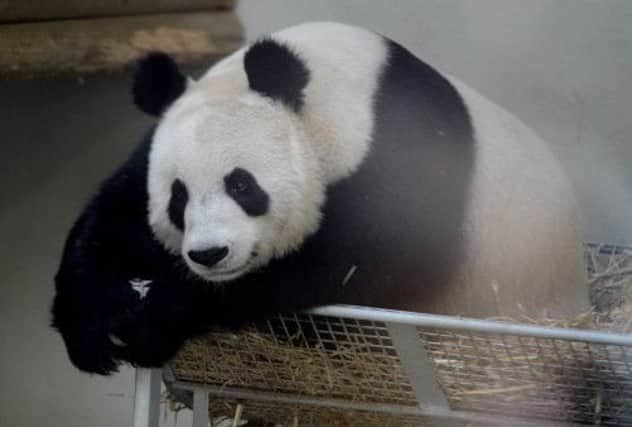Panda cub could generate up to £50m for economy


The arrival of the adult pair in 2011 helped Edinburgh Zoo to turn around its fortunes by generating a £5 million increase in turnover. Financial results released in May by the society that runs the zoo showed its income had increased by 53 per cent, to almost £15m.
A VisitScotland spokesman said if a cub was born, the zoo could easily repeat, if not exceed, these figures.
Advertisement
Hide AdAdvertisement
Hide Ad“The knock-on effects could be huge,” he said. “The imagery of the zoo and the cubs being shown around world could clearly cause a massive spike in the number of people visiting.
“People would go back. We could at least expect to replicate the successes, if not more than likely exceed them.
“But it would have massive benefits for accommodation providers, other attractions in Edinburgh and across Scotland. There is great potential there.”
An economic impact survey carried out by Scottish Enterprise before the pandas’ arrival had projected that, in the most positive scenario, the animals could result in an extra £28m in visitor expenditure in Edinburgh, and a further £20m in the wider Scottish economy, over the next ten years.
However, the projections had not factored in the birth of a cub, and a spokeswoman for Scottish Enterprise said that if one was born, it was possible this figure could be equalled, if not exceeded.
“It’s likely that, if the panda is pregnant, there will be a return in interest, and this will lead to increased economic activity,” she said.
“It would be fair to say, given our estimations, which were based on one pair of adult pandas and no cub, that the economic impact would increase – factoring in repeat visitors to see the baby panda, and a renewed public interest and renewed media interest that will bring a surge in numbers.”
The next economic report will not be compiled until next year at the earliest, but Scottish Enterprise said it would have to factor any panda cub into its calculations.